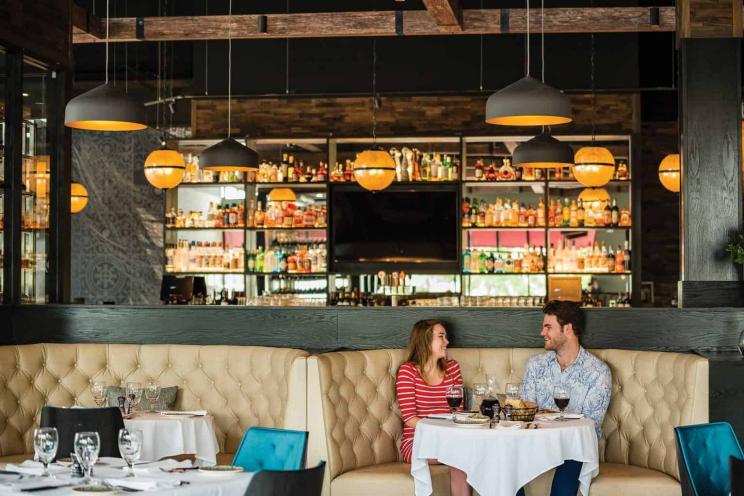
Restaurant Reputation Management: Tips for Handling Reviews
While it’s crucial to maintain a strong presence on social media platforms, knowing how to handle this presence, especially with the possible negative feedback you might receive is even more crucial and defines you as a successful entrepreneur.
Imagine posting a picture of your best-selling item on Instagram to be attacked by a customer who is writing a negative review about your customer service or the cleanliness of your bathrooms!
In this digital age, online reviews can significantly influence a restaurant's reputation. With platforms like Yelp, Google Reviews, and TripAdvisor becoming go-to resources for diners, managing your restaurant's online reputation can be one of the hardest tasks ever.
How do you handle online reviews to maintain your restaurant's reputation?
Monitor Reviews Regularly
Why It Matters:
Studies show that 72% of diners consult online reviews before choosing where to eat, making it vital to stay on top of what’s being said about your restaurant. Regular monitoring helps you stay aware of what customers are saying and enables you to address issues promptly.
How to Do It:
Use Monitoring Tools: Tools like Google Alerts, Yelp for Business, and social media monitoring services can track new reviews.
Set Up Notifications: Enable notifications on review sites to respond promptly to feedback.
Respond to All Reviews
Why It Matters:
Responding shows that you value customer feedback and are committed to excellent service. It also allows you to thank customers for positive comments and address concerns.
How to Do It:
Be Timely: Aim to respond within 24-48 hours.
Personalize Responses: Use the customer’s name and reference specific details from their review.
Maintain Professionalism: Keep a courteous and professional tone, whether the review is positive or negative.
Handle Negative Reviews Constructively
Why It Matters:
Negative reviews can deter potential customers, but constructive handling can demonstrate your commitment to satisfaction.
How to Do It:
Acknowledge the Issue: Start by acknowledging the customer’s experience and apologizing for any inconvenience.
Offer Solutions: Provide a clear solution or invite the customer to contact you directly to resolve the issue.
Learn from Feedback: Use negative reviews as an opportunity to identify and address areas for improvement.
Encourage Positive Reviews
Why It Matters:
Positive reviews can boost your restaurant’s rating and attract more diners.
How to Do It:
Ask Directly: Encourage satisfied customers to leave a review.
Simplify the Process: Provide easy links to review sites on your website, social media, and follow-up emails.
Incentivize Feedback: Offer small incentives, like a discount on their next visit, for leaving a review (ensure compliance with review platform policies).
Highlight Positive Reviews
Why It Matters:
Sharing positive reviews can enhance credibility and attract more customers by showcasing real experiences.
How to Do It:
Feature on Website: Create a testimonials section to showcase positive reviews.
Share on Social Media: Regularly post positive reviews on social media channels.
Include in Marketing: Use excerpts from positive reviews in promotional materials like menus, flyers, and newsletters.
Analyze Review Data
Why It Matters:
Analyzing review data helps understand customer preferences, identify recurring issues, and make informed decisions.
How to Do It:
Identify Patterns: Look for common themes in reviews.
Track Performance: Monitor changes in review scores over time.
Act on Insights: Use insights from reviews to improve your menu, service, and overall experience.
Train Staff on Customer Service
Why It Matters:
Your staff is the face of your restaurant, and exceptional service can lead to positive reviews.
How to Do It:
Regular Training: Conduct training sessions focused on customer service skills.
Empower Employees: Allow staff to resolve minor issues on the spot.
Reward Excellence: Recognize and reward staff who provide excellent service.
Maintain Consistent Quality
Why It Matters:
Consistency in food and service quality is key to building a loyal customer base and preventing negative reviews.
How to Do It:
Standardize Recipes: Ensure chefs follow standardized recipes.
Quality Checks: Conduct regular quality checks on food and service.
Solicit Feedback: Regularly ask for customer feedback to ensure consistent satisfaction.
Handle Online Criticism with Grace
Why It Matters:
Graceful handling of criticism can turn a negative experience into a positive one.
How to Do It:
Stay Calm: Approach criticism with an open mind.
Be Transparent: Acknowledge mistakes and explain corrective actions.
Follow Up: Ensure the customer is satisfied with the resolution.
Engage with the Community
Why It Matters:
Building community ties enhances your reputation and fosters loyalty.
How to Do It:
Host Events: Organize or sponsor local events.
Collaborate: Partner with local businesses for cross-promotions.
Participate in Initiatives: Engage in charitable initiatives or community projects.
Leverage Influencers and Food Bloggers
Why It Matters:
Influencers and bloggers can promote your restaurant to a wider audience.
How to Do It:
Identify Influencers: Find influencers who align with your brand.
Invite for Reviews: Offer complimentary meals in exchange for honest reviews.
Engage on Social Media: Share their posts and engage with their content.
Use Feedback for Improvement
Why It Matters:
Negative feedback can be a valuable tool for improvement. Tools like Flexsurv enables you to collect a transparent review from your customers in a way that is directly linked to your POS and CRM.
How to Do It:
Analyze Complaints: Identify the root causes of common complaints.
Implement Changes: Make necessary changes based on feedback.
Communicate Improvements: Inform customers about changes made in response to their feedback.
Create a Loyalty Program
Why It Matters:
Loyalty programs incentivize repeat visits and foster a sense of belonging.
How to Do It:
Design Rewards: Offer appealing rewards like discounts or exclusive access.
Promote the Program: Use signage, social media, and email marketing to promote.
Track Rewards: Ensure rewards are tracked and distributed promptly.
Stay Updated on Industry Trends
Why It Matters:
Keeping up with industry trends helps you stay ahead and meet changing preferences.
How to Do It:
Attend Events: Participate in industry conferences and workshops.
Read Publications: Follow industry magazines, blogs, and newsletters.
Network: Connect with other restaurant owners to share insights.
Managing your restaurant’s online reputation is an ongoing process that requires diligence, responsiveness, and a proactive approach. Incorporate these tips into your reputation management strategy so you can effectively handle reviews and build a strong, positive reputation for your restaurant.
Consistently delivering excellent service and quality, engaging with your community, and leveraging positive feedback can help ensure your restaurant remains a top choice for diners.
Remember, every review is an opportunity to learn and grow, ensuring your restaurant remains a favorite choice for diners in your community.





